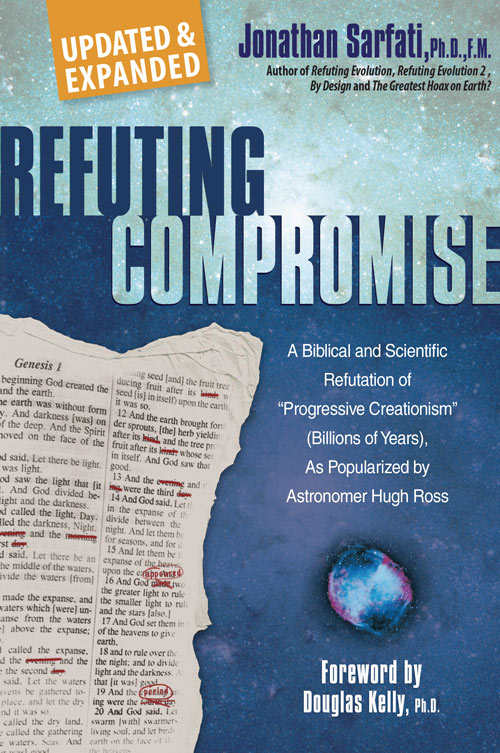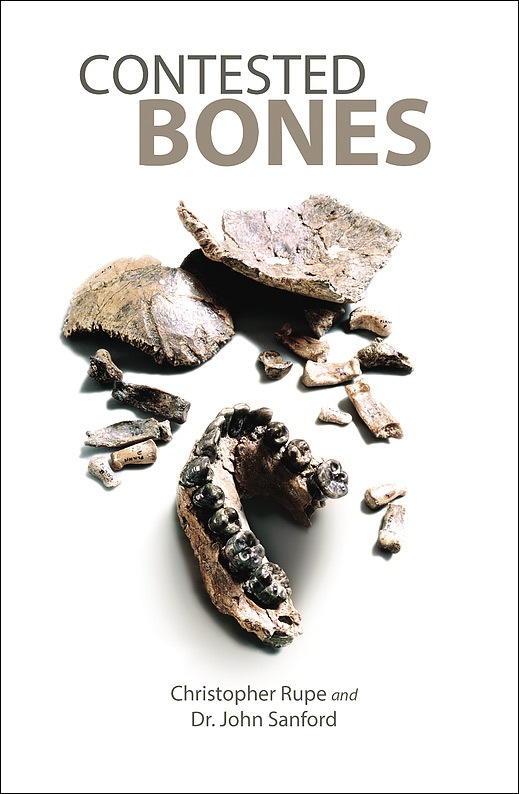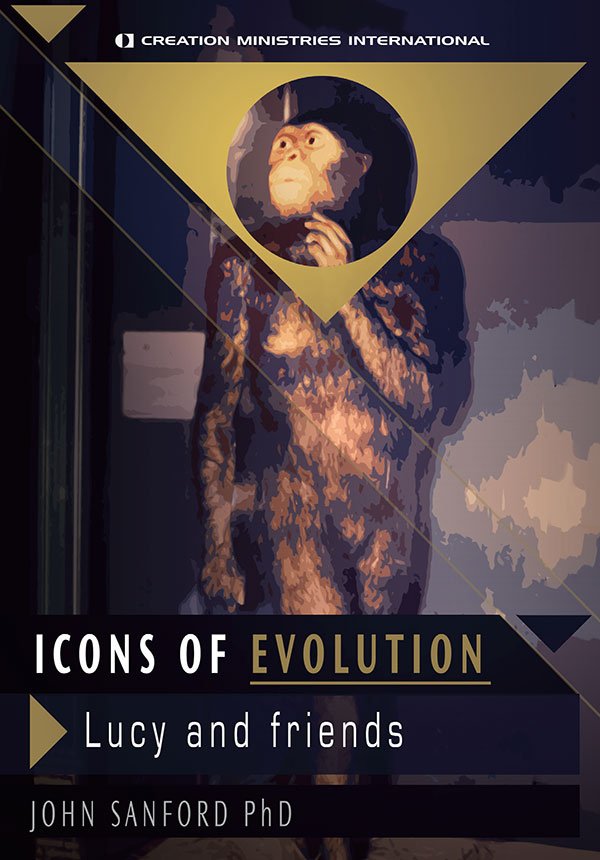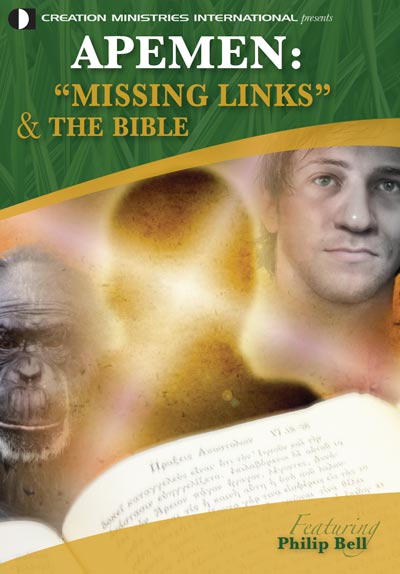Journal of Creation 37(3):27–28, December 2024
Browse our latest digital issue Subscribe
Evolution as partner in evangelical academia?
A review of: Science and the Doctrine of Creation: The approach of ten modern theologians by Fulkerson, G.H. and Chopp, J.T. (Eds.)
IVP Academic, Downers Grove, IL, 2021
Science and the Doctrine of Creation advocates the compatibility of evolution and the doctrine of creation. This landmark coproduction of the Templeton Religion Trust, Intervarsity Press, and Trinity Evangelical Divinity School (TEDS) with an imprimatur by Alister McGrath is indicative of the state of neo-evangelical theology.
This volume seeks its inspiration and guidance not from Holy Scripture as the inerrant Word of God or the great orthodox theologians of the church, but from scholars like Pannenberg and Moltmann. This volume seeks its guidance for the doctrine of creation from theologians who not only deny the Trinity in any traditional sense, but the infallibility of Scripture as well. That these theologians operate from premises and arrive at doctrines that are at odds with a traditional definition of Christianity is not a hindrance. This is unfortunate.
Disappointing
Personally, I was looking forward to reading this book, because the title suggested an overview of prominent theologians and perhaps an evaluation of their views in the light of Scripture and traditional doctrine. In that respect this book is somewhat of a disappointment. For instance, Schwöbel discusses Pannenberg’s trinitarian views in neo-evangelical terms (p. 190), apparently without realizing that Pannenberg uses the term ‘trinity’ not in any orthodox sense at all.
Every chapter has a section that is supposed to be a neutral description of views, followed by ‘a conversation with’. Often these two are mixed, while throughout Science and the Doctrine of Creation most contributing authors hasten to insist that the scholar whom they discuss puts nothing in the way of evolutionist science. The possible exception is Bradley Gundlach’s chapter on Warfield, who insisted on mankind’s unity in Adam, and the historicity of a worldwide Flood (p. 79).
Evolution
Otherwise, the contributing authors in their own words:
- Fred Sanders: “On evolution, Pope accepts the idea of development broadly but contends that the very intricacy of the processes, to which the scientists rightly point, requires belief not in impersonal force, but in the personal God” (p. 28).
- Craig Bartholomew: “Kuyper is quite open to God having used evolution as His means of creating” (p. 50).
- Joshua W. Hipp: “There is in fact a deep concord between science and a theistic faith” (p. 96).
- Katherine Sonderegger: “There is one world and one truth, and the Lord God of all creation is the origin, the ratio, and the scientia of all that is. Such is the science I believe Barth would have welcomed” (p. 119).
- Kevin L. Vanhoozer: “Christ is the ground and grammar of the shared intelligibility of theology and science” (p. 145).
- Stephen N. Williams: “As long as a theologian does not proceed in flagrant contravention of scientific knowledge or ignore prevalent scientific theory, we must surely be flexible in our expectations with regards to the extent and nature of the theologian’s grasp of science. Theology has its own things to say just as science has its own things to say” (p. 167).
- Christoph Schwöbel: “Pannenberg attempts to show the compatibilities of scientific theories and theological reflection” (p. 189).
- Stephen J. Wright: “The Christian doctrine of creation, in Jenson’s view, enables science by freeing us from the worship of the world” (p. 211).
- Murray A. Ray: “I have tried to show that the Christian doctrine of creation reveals the possibility, and indeed the necessity, of respectful collaboration between science and theology” (p. 240).
From the perspective of the Templeton Religion Trust (promoting multi-faith and evolutionary science, templeton.org) one is tempted to respond: “Well done, ye good and faithful servants”. Through its Covenantal Pluralism Initiative, Templeton aims to promote religious freedom and literacy as well as the virtues of inter-faith engagement across deep religious differences. It should be of concern to evangelicals that seminaries like Deerfield and Fuller, and especially TEDS, are collaborating with Templeton and accept grants for these specific purposes.
The absence of a modern theologian with genuinely orthodox positions on creation and science leaves the reader with the impression that any theologian who counted in the last 150 years was more or less open to the compatibility of Darwinism and the Bible, with the possible exception of Warfield.
Kuyper misrepresented
Even Abraham Kuyper is presented as “quite open to God having used evolution as His means of creating” (p. 50). This is, however, a reinterpretation that dates back to the days of biologist and Vrije Universiteit Amsterdam (VU) professor L. Lever, who made Darwinism acceptable at the ‘Free University’. This view has been repeated by Abraham Flipse (e.g. Annals of Science 65(3):363–391, 2008). Insisting that Kuyper would have been open to God having used evolution is a way in which heterodox reformed scholars in the 1950s and ’60s tried to make their position acceptable by suggesting a continuity that never was. So general was the rejection of Darwinism at VU that it was only by 1933 that Professor Sizoo, classical scholar, dared to suggest reasons for contemplating an old earth. Bartholomew refers to the Kuyper lecture at VU (when he retired as rector) on evolution from James Bratt’s reader, which only comprises a part of the text in translation.
Had Bartholomew been in a position to consult the original Dutch in full (Evolutie, Rede bij de overdracht van het rectoraat aan de Vrije Universiteit op 20 October 1899, Höveker & Wormser, Amsterdam 1899, pp. 1–51), then he would most likely have concluded with Koos van Delden (Reformatorisch Dagblad, 6 April 2006):
- Kuyper found Darwinism wanting in scientific respect and irreconcilable with purposeful creation, as he recognized that evolutionary theory does not allow for purposes, only for natural selection (p. 11).
- Kuyper pointed to the social implications of a scientific basis that considers survival of the fittest as a natural mechanism, and stated that this was completely unacceptable from a Christian point of view (p. 12).
- He argued that nature indicates that development from one proper species into another does not happen, and would lead to infertility if it did (p. 33).
- Fossil evidence for intermediate states between species are missing (p. 34).
- Breeding offers no experimental basis for Darwinism, as this only results in variation within the confines of a kind, not in evolution (p. 35).
- There is no evidence for spontaneous emergence of life (abiogenesis or chemical evolution) whatsoever (p. 36). Darwinism cannot explain our appreciation for aesthetics and any notions like beauty in nature (p. 39).
- Moral responsibility, in the Christian sense, and faith are clearly at odds with Darwinism and cannot have been the result of evolution (p. 41).
In sum, it is not a coincidence that Kuyper, on his retirement, chose to address the topic of Darwinism in his last rectoral address. With 40 pages specifically aimed at refuting evolution, Kuyper wished to impress on the next generation of leadership that Darwinism was at odds with orthodox Christian theology and should not be accepted.
Kuyper’s final words (in my translation) are as relevant today as they were in 1899:
“Dear Sirs, when I first stepped down as Rector, my warning was against the Criticism of Scripture, which stole from us the Revelation of our God. When I spoke of the ‘blurring of Boundaries’, I spoke against the murderous influence of Pantheism. I have now considered it my calling to raise my voice against the even more deadly danger lurking in Evolution. Not narrowly and for the Reformed tradition only, but for the sacred pledge entrusted to our Christian religion in its broadest conception, I have spoken both the previous times and also now. And so I also now end by seeking safety in what has always been and is and will be the foundation of the creed for the entire Christian church on earth, by maintaining against Evolution the first of all articles of faith: I BELIEVE IN GOD ALMIGHTY, CREATOR OF HEAVEN AND EARTH.”1
Kuyper stated unequivocally that, in his view, the first article of the Apostles’ Creed and Darwinism are enemies. Not partners in evangelical academia, as Science and the Doctrine of Creation suggests.
References
References and notes
- Dutch original: “M. H., toen ik het eerst als Rector aftrad, ging mijn waarschuwing uit tegen de Schriftcritiek, die ons de Openbaring onzes Gods ontstal. Toen ik over de ‘Verflauwing der grenzen’ sprak, nam ik het woord op tegen den moordenden invloed van het Pantheïsme. Thans achtte ik het mijn roeping, tegen het nog doodelijker gevaar dat in de Evolutie schuilt, mijn stem te verheffen. Niet enghartig voor het specifiek-Gereformeerde, maar voor het heilig pand onzer Christelijke religie in haar breedste opvatting, heb ik én de beide vorige malen, én zoo ook nu, het woord gevoerd. En zoo eindig ik ook nu met mij terug te trekken in wat voor heel de Christelijke kerk op aarde in haar Belijdenis het uitgangspunt steeds was en is en zijn zal, door tegenover de Evolutie te maintineeren het eerste van alle geloofsartikelen: IK GELOOF IN GOD ALMACHTIG, SCHEPPER DES HEMELS EN DER AARDE.” Evolutie, Rede bij de overdracht van het rectoraat aan de Vrije Universiteit op 20 October 1899, Höveker & Wormser, Amsterdam 1899, p. 45. Return to text.






Readers’ comments
Comments are automatically closed 14 days after publication.